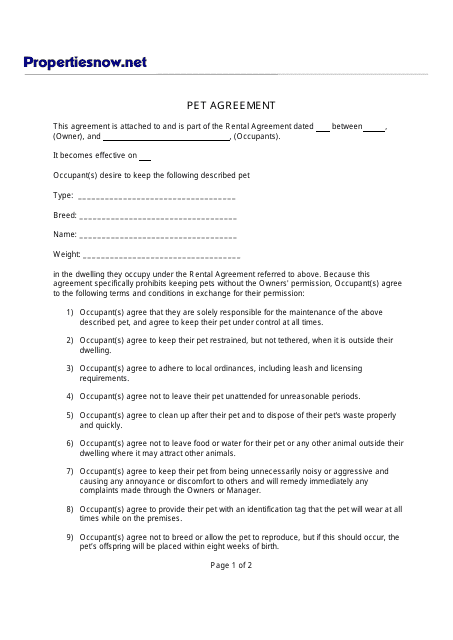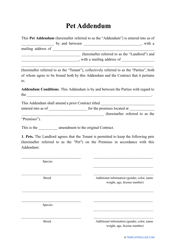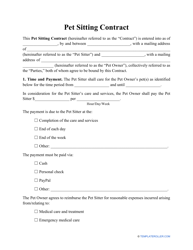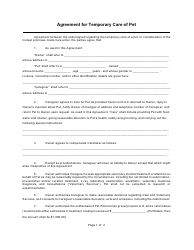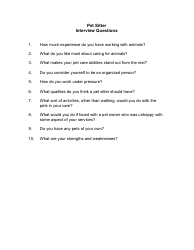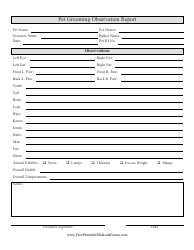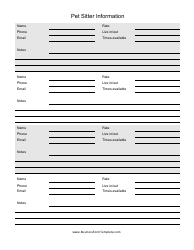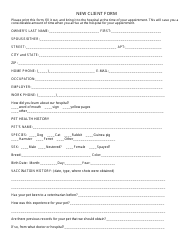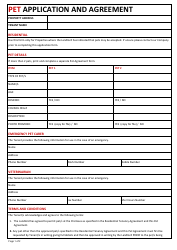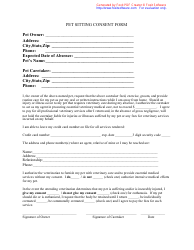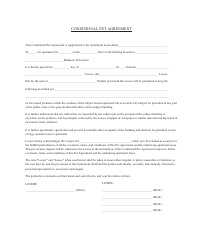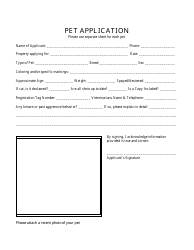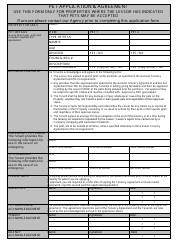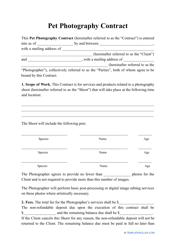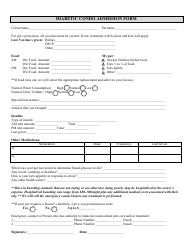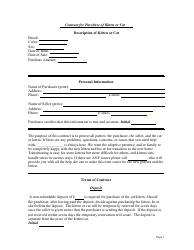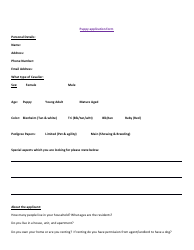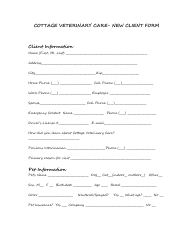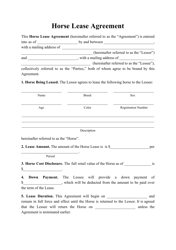Pet Agreement Form - Seventeen Points
The Pet Agreement Form - Seventeen Points is commonly used to outline the terms and conditions for keeping a pet in a rental property. It helps establish rules and responsibilities for both tenants and landlords regarding pet ownership.
The Pet Agreement Form - Seventeen Points is typically filed by the tenant or renter.
FAQ
Q: What is a pet agreement form?
A: A pet agreement form is a legally binding document that outlines the terms and conditions for keeping a pet in a rental property.
Q: Why is a pet agreement form important?
A: A pet agreement form is important to clarify the responsibilities of both the tenant and the landlord regarding pets in the rental property.
Q: Who needs to sign a pet agreement form?
A: Both the tenant and the landlord need to sign a pet agreement form.
Q: What are some common points included in a pet agreement form?
A: Some common points included in a pet agreement form are pet restrictions, pet deposit or fees, pet damage liability, and pet care responsibilities.
Q: Can a landlord refuse a pet in a rental property?
A: Yes, a landlord has the right to refuse pets in a rental property, but they must clearly state it in the rental agreement.
Q: Can a landlord charge a pet deposit or fee?
A: Yes, a landlord can charge a pet deposit or fee to cover any potential damages caused by the pet.
Q: What happens if a tenant violates the pet agreement form?
A: If a tenant violates the pet agreement form, they may face consequences such as eviction or additional fines.
Q: Can a landlord change the pet agreement terms?
A: A landlord can only change the pet agreement terms with the tenant's consent or by following the proper legal procedures.
Q: Are emotional support animals allowed in rental properties?
A: In most cases, emotional support animals are allowed in rental properties under the Fair Housing Act, but specific documentation may be required.
Q: Are there any breed restrictions in pet agreement forms?
A: Some pet agreement forms may include breed restrictions based on insurance policies or local regulations.
